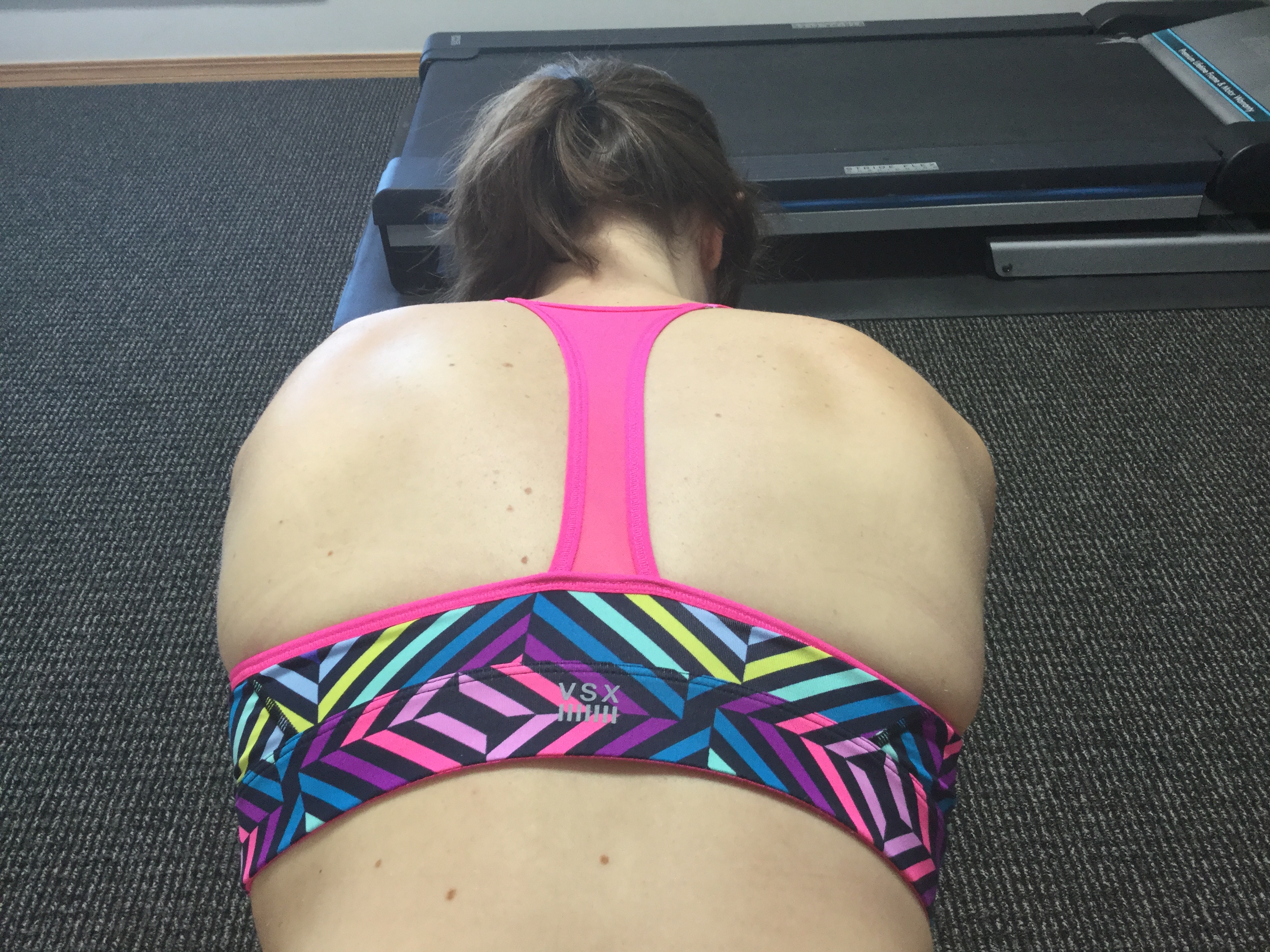Tummy Time: Part Two
The Neck
Benefits
Humans are most comfortable with their eyes level with and on the horizon. When babies are lying on their tummies, they do not leave their foreheads on the ground to stare at the floor! Instead, each will upright the head in order to take in the world around him or her; this is precisely how the spinal curve of the neck begins to develop. Of course, infants will not be able to achieve full head uprighting at first, as this in itself is a 'skill' to develop. But even from a young age, the baby will look from side to side. Once a baby masters the ability to support the head, he or she easily will progress to a more difficult movement pattern - requiring head control - such as crawling or walking.
Consequences
Good head control is achieved via deep muscles located throughout the neck and shoulders. If a baby is not allowed to develop these muscles - by lying on its stomach - other and more superficial muscles will adopt the stabilizing roles instead. As we have mentioned in previous blogs, some muscles have the main purpose of movement. If they are forced to stabilize instead, they are no longer capable of achieving full movement. This change in roles leads to the body laying down trigger points, or 'knots', and signaling pain - presenting in the jaw, head, neck, or upper back.
The Shoulders
Benefits
Remember the ingrained motor patterns that babies are born with? (Part One) The shoulder complex plays a massive role in the ability to advance effectively through those progressions. To stabilze the shoulder, babies learn to load the hand through the following connection: floor --> hand/wrist --> arm --> shoulder blade --> rib cage. From tummy time, babies progress to rolling over and eventually crawling. You might not consider it now, but being able to crawl (properly) is a difficult task! It requires stability, from your hand to your opposite knee, and all the structures in-between must work in collaboration.
Consequences
The shoulder complex is an amazing system of multiple muscles, ligaments, tendons, bones, and fascia. An often overlooked part of the shoulder complex is the shoulder blade, or scapula. This bone can be viewed as an 'anchor' to the body from which the arm can move. If the scapula is not properly controlled, the smaller rotator cuff muscles are forced to hold tight instead. I would bet 99% of the population has heard of the rotator cuff, whether it be because they have had problems with it themselves or knew someone else who did. Even wrist and elbow problems can be linked back to poor shoulder mechanics because it acts as a base from which to accomplish tasks (think tennis elbow or tendonitis).
Posture
Benefits
Having erect (upright) posture is something that differentiates us from other species. Poper posture is a visual sign of good health on the inside. Your eyes are naturally drawn to someone who stands tall with their head up and shoulders back. Aside from signaling good health, good posture exudes confidence, which is vital for accomplishing life's goals. Adequate tummy time develops musculature that will maintain good posture throughout your life. This keeps your head from protruding forward, your shoulders from rounding in, and your upper back from slouching.
Consequences
In today's world of all things technology, there is an overwhelming tendency for people to look down at their phones, tablets, desktops, etc. Your head holds a substantial portion of weight and the farther forward it travels from your torso, the more strain is placed on the vertebrae, surrounding ligaments and muscles in the neck. If, as a child, you did not develop proper neck curvature in the first place, you are at an increased risk for developing upper body aches and pains because the supporting structures are not in their ideal position. Another sign of insufficient tummy time is 'winged / flared' shoulder blades and a visual is shown below.

In conclusion, I hope these examples highlight the importance of adequate tummy time during a child's development. Send us an email or call us if you would like to set up an appointment to assess the progress of your baby!
About the author
Dr. Rachel Sparks is the co-founder of ICT Muscle & Joint Clinic, a board-certified chiropractor, and functional medicine expert. The core of Dr. Sparks’ beliefs lies within the ability to move often and to move well. Dr. Rachel Sparks is passionate about improving the scope of care available for the pregnant and postpartum women through her integrative approach of chiropractic, rehab, nutrition, and functional health.

